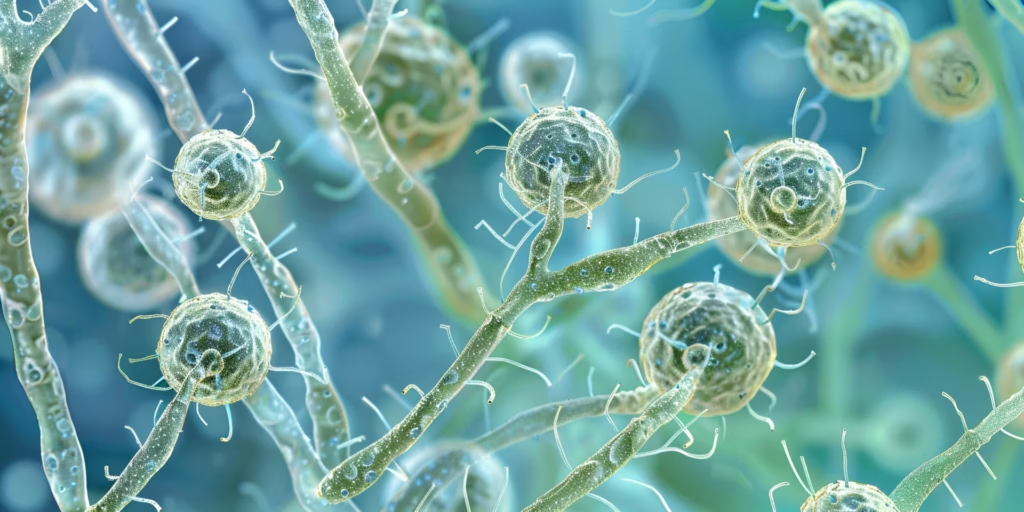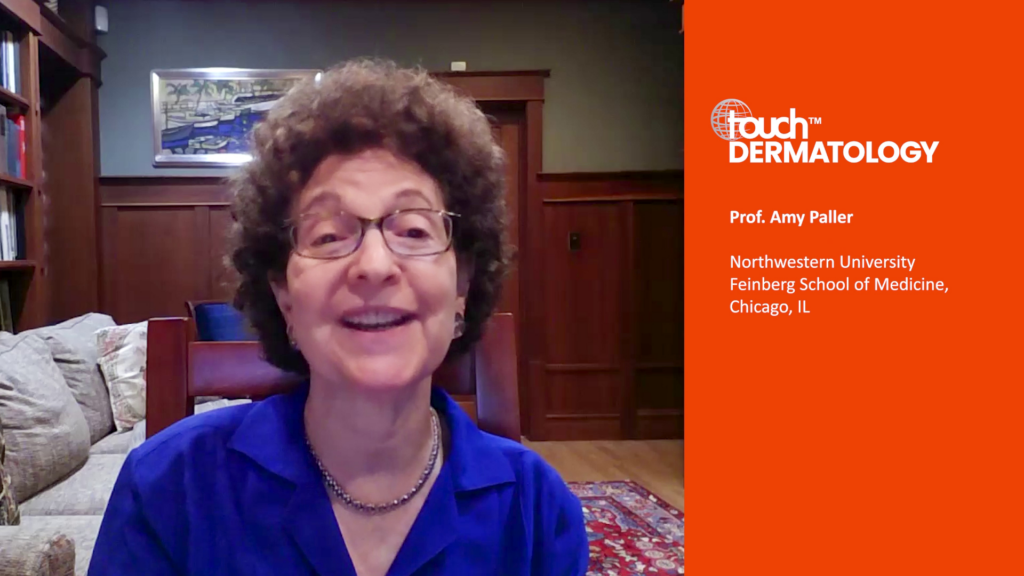Dermatological Disorders
An Introduction to Dermatological disorders
Dermatological disorders, also known as skin disorders or skin conditions, encompass a wide range of medical conditions that affect the skin, hair, nails and mucous membranes. These disorders can vary widely in terms of their causes, symptoms, severity and treatments. Some common dermatological disorders include acne, atopic dermatitis (i.e. eczema), psoriasis, rosacea, urticaria, vitiligo, fungal infections, skin cancer, hair loss, excessive sweating and ichthyosis. Accurate diagnosis and appropriate treatment are essential for managing these conditions and promoting skin health. The treatment of many of these conditions may require a multidisciplinary approach, particularly in addressing the psychological aspects of some of these conditions.

Onychomycosis is one of the most common nail conditions seen in clinical practice, yet diagnosis is often uncertain and treatment failures are frustratingly common. In this episode, Dr Shari Lipner shares practical updates on smarter diagnostics, existing & emerging therapies, and what we need to know about how to manage this condition today and in the future.

This year, we are celebrating our inaugural touchDERMATOLOGY Future Leaders to recognize the outstanding talent that has entered our field in recent years. These individuals are set to innovate and transform dermatology in the years to come. Representing a diverse range of expertise from across the globe, these highly accomplished clinicians are among the brightest minds shaping the future of dermatology. We had the pleasure of learning about their unique career journeys, motivations, and the inspirations that have guided their paths. They also shared their perspectives on the most exciting developments in dermatology today, along with their hopes for the future of the field. Congratulations to all our touchDERMATOLOGY Future Leaders, and thank you for sharing your stories, insights and ambitions with us.

Dr Zenas Yiu has been named one of the touchDERMATOLOGY Future Leaders 2025 in recognition of his contributions to dermatological research. Based in Manchester, UK, his work focuses on pharmacoepidemiology and the evaluation of treatments for chronic inflammatory skin conditions. As part of the Future Leaders series, Dr Yiu shares insights into his clinical and academic career in dermatology.

With a career that bridges continents and disciplines, we are delighted to feature Dr Yi-Kui Xiang in our touchDERMATOLOGY Future Leaders 2025 initiative. Based in Berlin, Germany, Dr Xiang serves as a clinical scientist at both the Charité Institute of Allergology and the Fraunhofer Institute for Immunology and Allergology, but also maintains a clinical role at the Shanghai Skin Disease Hospital in China. His research interests span from urticaria, IgE-mediated autoimmunity and allergology to alopecia, pruritus, psychodermatology and patient-reported outcomes.

Dr Tashmeeta Ahad is helping to push the boundaries of modern dermatology. Based in Vancouver, she is a Clinical Assistant Professor at the University of British Columbia and a clinician-scientist at the Photomedicine Institute, where her work spans photosensitivity disorders, laser and phototherapy, and innovative optical biopsy techniques for skin cancer monitoring. In this Future Leader 2025 Q&A, Dr Ahad shares how her global training journey, early mentors, and the visual complexity of dermatology have shaped her career—and why imaging technologies are opening new possibilities for patient care.

Dr Niraj Parajuli shares his journey into dermatology, from early motivations to his current work in neglected tropical diseases, rare skin conditions, and digital dermatology. Discover how his global leadership and commitment to health equity are shaping the future of the field.

We are delighted to introduce touchDERMATOLOGY Future Leader Dr Neelam Vashi, a highly accomplished dermatologist widely recognized for her expertise in cosmetic dermatology, skin of colour and laser medicine. In this Q&A, Dr Vashi shares the values and experiences that shaped her journey in dermatology, her perspective on patient-centred innovation and her vision for a more authentic understanding of beauty.

From an unexpected start to becoming a dual specialist in dermatology and dermatopathology, Dr Jonathan Ho is helping redefine skin health in the Caribbean. Based in Kingston, Jamaica, he’s combining clinical care, research, and education to improve outcomes for patients with autoimmune, malignant and complex skin conditions. In this Future Leader 2025 Q&A, Dr Ho shares the pivotal moments that shaped his career, his passion for mentorship, and how he’s building a meaningful path in academic dermatology.

Dr Corinne Maiolo is based in Adelaide, where she treats both adult and paediatric patients, with particular interests in acne, rosacea, eczema, psoriasis, and hair loss. She is the founder of myPRODERM and was awarded the La Roche-Posay Research Grant in 2024 for her work in atopic dermatitis. In this Q&A, Dr Corinne Maiolo reflects on the moments that have shaped her career and shares her hopes for the future of dermatological care.

Dr Antoni Gostyński is advancing the field of dermatology through his work on innovative diagnostic tools and therapeutic strategies. Based at Maastricht University Medical Centre, Dr Gostyński co-leads the hereditary skin diseases clinic and also practises at the Catharina Hospital in Eindhoven. His clinical and research interests centres on genodermatoses, particularly ichthyoses amd palmoplantar keratodermas (epidermal differentiation disorders), and he actively collaborates with national patient advocacy groups to support those living with these rare genetic conditions.

“If I can play even a small part in breaking that silence, reducing the stigma, progressing the discussion and hopefully pushing the science forward, that would feel like a huge success.” Dr Alicia Little is transforming women’s skin health through compassionate care and pioneering research.

The International Society of Dermatology (ISD) stands at the forefront of advancing global skin health through education, collaboration and outreach.1 Established with a mission to bridge disparities in dermatological care worldwide, the ISD has become a vital hub for connecting ...

Physician burnout is at a critical point. In this episode, Nicky speaks with Dr Alfred Atanda about why so many physicians are burning out and what can be done to change the trend. From personal experience to system-wide solutions, Dr Atanda shares valuable insights on improving physician well-being and building a more effective healthcare culture.

The International Society of Dermatology (ISD) stands at the forefront of advancing global skin health through education, collaboration and outreach.1 Established with a mission to bridge disparities in dermatological care worldwide, the ISD has become a vital hub for connecting ...

Renowned for his work in urticaria, drug allergies and angioedema, Professor Luis FC Ensina is a distinguished allergologist. As a Professor of the Division of Allergy, Clinical Immunology and Rheumatology at the Federal University of São Paulo, Brazil and ...

An expert in paediatric dermatology provides guidance on managing patients with epidermolysis bullosa
Latest articles videos and clinical updates - straight to your inbox
Log into your Touch Account
Earn and track your CME credits on the go, save articles for later, and follow the latest congress coverage.
Register now for FREE Access
Register for free to hear about the latest expert-led education, peer-reviewed articles, conference highlights, and innovative CME activities.
Sign up with an Email
Or use a Social Account.
This Functionality is for
Members Only
Explore the latest in medical education and stay current in your field. Create a free account to track your learning.



